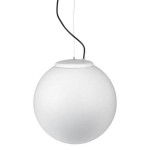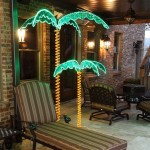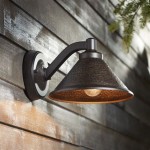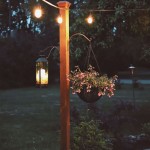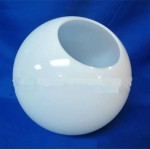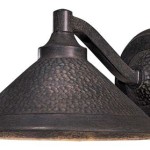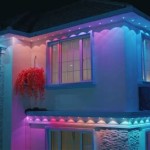What Color Outdoor Light Does Not Attract Bugs In House?
Outdoor lighting is an essential part of any home, providing safety, security, and aesthetic appeal. However, many homeowners struggle with unwanted insect guests drawn to the light. Choosing the right type of light can significantly reduce bug attraction, allowing you to enjoy your outdoor space without being swarmed.
Understanding Bug Attraction to Light
Many insects, particularly moths and flying insects, are attracted to light due to a phenomenon called "phototaxis." This innate behavior is an essential aspect of their survival. They use light sources, particularly the moon and stars, for navigation and orientation. Artificial light sources, such as outdoor lights, can confuse them, and insects may mistakenly fly toward these light sources, believing them to be natural celestial bodies.
However, not all light colors attract insects equally. Certain wavelengths of light are more appealing to insects than others. For example, insects have a strong preference for shorter wavelengths of light, particularly blue and ultraviolet (UV) light. Conversely, longer wavelengths, such as red and yellow, are less attractive to them.
Yellow Light – A Safer Option
Yellow lighting has become a popular choice for outdoor lighting due to its effectiveness in deterring insects while still providing ample illumination. Yellow light bulbs emit a longer wavelength of light that is less appealing to insects, reducing the likelihood of them being attracted to your porch or patio.
Some commonly used yellow lights include:
- Sodium Vapor Lights: These lights emit a bright yellow light that is highly efficient and effective in deterring insects. However, they may not be as aesthetically pleasing as other options.
- High-Pressure Sodium (HPS) Lights: These lights provide a warm, yellowish glow that is less attractive to insects and offers excellent visibility. They are efficient and long-lasting but can be expensive.
- LED Bulbs with Warm White Color Temperature: LED bulbs offer a wide range of color temperatures, and those with a warmer white hue (around 2700K to 3000K) emit a yellow light that is less appealing to insects while still providing adequate brightness.
Other Considerations
While yellow light is often touted as the most effective way to reduce insect attraction, other factors also play a role. Here are some additional tips to minimize insect gatherings around your outdoor lights:
- Minimize Light Intensity: Brighter lights tend to attract more insects. Opt for lower-wattage bulbs or use motion sensors to activate lights only when necessary.
- Shield the Light: Direct light shines directly onto the insect, making it more appealing. Use shielded lights or fixtures that direct light downwards, reducing the area of light exposure.
- Maintain a Clean Yard: Reduce the overall insect population in your yard by regularly cleaning up any debris or standing water where insects may breed.
Beyond Yellow: Exploring Other Alternatives
While yellow light remains a popular choice for insect deterrents, research suggests that other colors might also offer promising results.
- Red Light: Recent studies suggest that red light, with wavelengths longer than yellow, may be even less attractive to insects than yellow. This could be a potential alternative for outdoor lighting, particularly in areas where insect presence is a significant concern.
- Amber Light: Some manufacturers now offer outdoor lights with an amber hue, which some users have found to be effective in reducing insect attraction.
It's important to note that insect preferences can vary depending on the specific insect species. While yellow light effectively reduces attraction for many insects, some species might still be drawn to it. Experimenting with different light colors and types may be necessary to find the most effective solution for your specific needs.

Outdoor Lighting Options That Won T Attract Bugs Vulcan Termite Pest Control

Do Led Lights Attract Bugs Outdoor Lighting

Do Led Lights Attract Bugs Outdoor Lighting

Outdoor Lighting Options That Won T Attract Bugs Vulcan Termite Pest Control

Do Led Lights Keep Bugs Away Light Colors To Reduce Insects

Do Led Lights Keep Bugs Away Light Colors To Reduce Insects
Are Bugs Attracted To Led Lights Quora

Do Led Bulbs Attract Insects And Bugs E Green Electrical
What Outdoor Lights Dont Attract Bugs Quora

Do Led Lights Attract Bugs Outdoor Lighting
